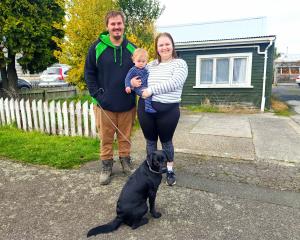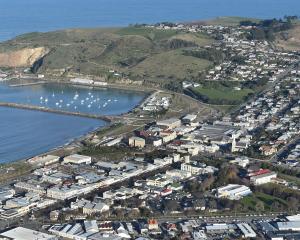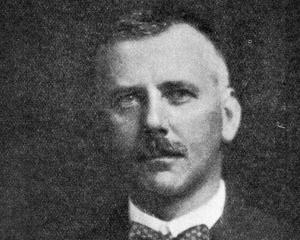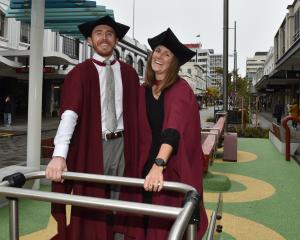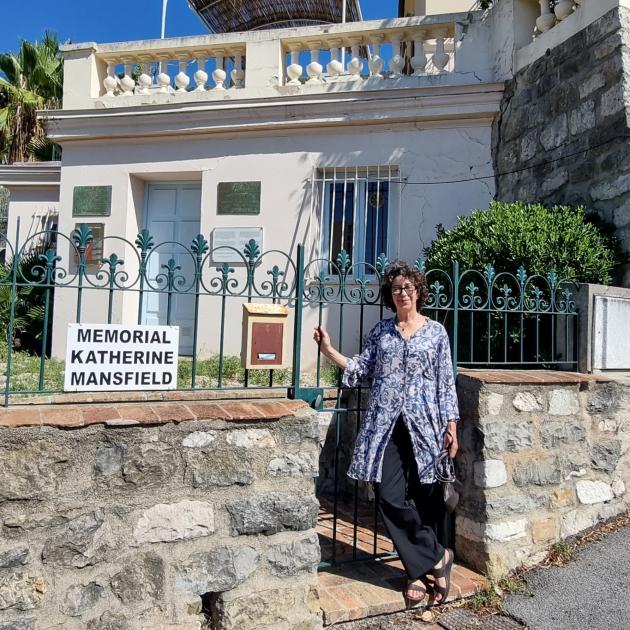
What did it mean to receive the Katherine Mansfield fellowship?
I have to fall back on a cliche to answer this question, because I can’t think of how else to put it: it really has been "an honour and a privilege". The fact that the fellowship commemorates Katherine Mansfield would be reason enough to feel honoured to be selected. Alongside this, the list of names of writers who have previously been awarded the fellowship reads like a who’s who of New Zealand literature. The fellowship was inaugurated with poet Owen Leeming in 1970, which makes me the 50th New Zealand writer to have this opportunity. I have a strong sense of following writers whose influences have helped shape my own craft, writers who paved the way for me to become a writer. So yes, it’s an honour and a privilege to be part of this tradition.
Your journey to get there has been a long one?
I was supposed to travel to France in 2020, but the pandemic put paid to that. Like so many other things at that time, the fellowship went into hibernation. Finally the worst of the uncertainty about travel subsided and we were able to plan the trip all over again. My partner Doug and I arrived in Menton in September 2023.
What projects have you been working on there?
I’m working on a collection of short stories, and have started planning a novel. As well, I’m writing poetry, and am also enjoying stitching together a meandering piece of creative non-fiction. Plus I’ve been writing a blog about my experiences, which people can read at menton.nz.
How has progress gone, or has French life been too distracting?
It’s a delicate balance! But, happily, "writing" involves so much more than sitting at the desk (although of course sitting at the desk is essential; if you don’t sit at the desk nothing gets written). But I decided early that if there was ever a contest, the distractions of French life should win. This is an invaluable opportunity to go off-piste, so to speak, letting serendipity lead the way. Time here has allowed me to fully inhabit my writer’s skin for a while, which means that as well as putting words on paper I’ve spent hours reading for pleasure, taking French lessons, looking at amazing art, exploring medieval towns, talking to people, eavesdropping, hiking, sight-seeing ... all this is part of the writing.
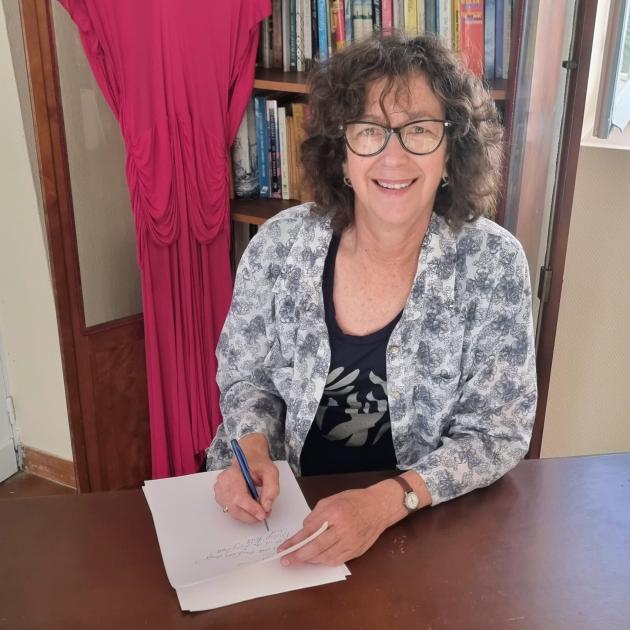
Everything I’ve writing here has been influenced in some way by spending time in Menton and meeting the Mentonese. The physical setting is beautiful, with its medieval town centre and pastel-coloured houses, its beaches, Italianate villas, gorgeous gardens and magnificent climate. Writing here, you can’t help but respond to all this. But Menton is not simply a sunny, romantic place to live. Like anywhere, it’s a place with many layers, and my dawning awareness of some of this complexity, I hope, has also worked its way into my writing.
Have you been using the writing room in Villa Isola Bella?
The Katherine Mansfield memorial room is situated beneath the Villa Isola Bella, the house which Mansfield occupied from September 1920 to May 1921. In her time, this space was probably the gardener’s shed (although some say it was the lapinière – the room where rabbits were raised for the pot). At any rate, Mansfield was so ill with tuberculosis that she could barely walk so, while she adored the villa’s garden, I can’t imagine she ever tackled the slope down to the gardener’s lair. I quite like the thought that this might be where the secateurs and spades were housed, where the potting mix was stored, where the seed-raising trays were shelved. In this room the gardener might have planned the care of the trees that Mansfield loved: the mimosa that "showered across" the path from the gate, the date palm below outside her bedroom window, the magnolia in bud.
It was a powerful experience opening the door to this room for the first time, almost enough to make me believe in ghosts. Not only is the gardener’s know-how in there, but surely also the spirit of the 49 writers who have held the fellowship before me. And from the terrace above, you can sense the spirit of Mansfield herself, writing and coughing, writing and coughing.
The room is very plain – rustic, you could say – and the musty odour is strong. A lingering scent of cage a lapins, perhaps? KM looks out from a poster on the wall; books by her and books about her are piled on a side table. There are two cabinets with book shelves and drawers. In one, alphabetically arranged, are titles by the 49 previous fellows who have spent time in this room since 1970. When I first opened that glass door, it was as if all the voices, pent up together (probably squabbling) for the past four years, seized the moment to rush out — still squabbling — for fresh air. That’s quite a lot of us for one little room, and such a bunch of strong-minded writers, all telling me at once how to do it. That first day it felt more daunting than inspiring. But all these spirits are on the side of writing — ink-whisperers every last one of them — with the upshot that the room is a special and productive place to work.
There are also some interesting relics in the room. The hotplate that many think was used by Janet Frame, for example, and a laptop left by Carl Nixon. To my mind the most surprising of these abandoned items is the pink viscose frock with the shoulder pads and the rouching. I’ve been racking my brains as to whose this might be. Not mine!
Have you achieved what you set out to do?
Yes. I’ll leave here with thousands of words written, some in the form of completed poems and stories, some as works-in-progress. Others are simply jottings of ideas sparked but temporarily parked, to be picked up again as time allows in years to come.
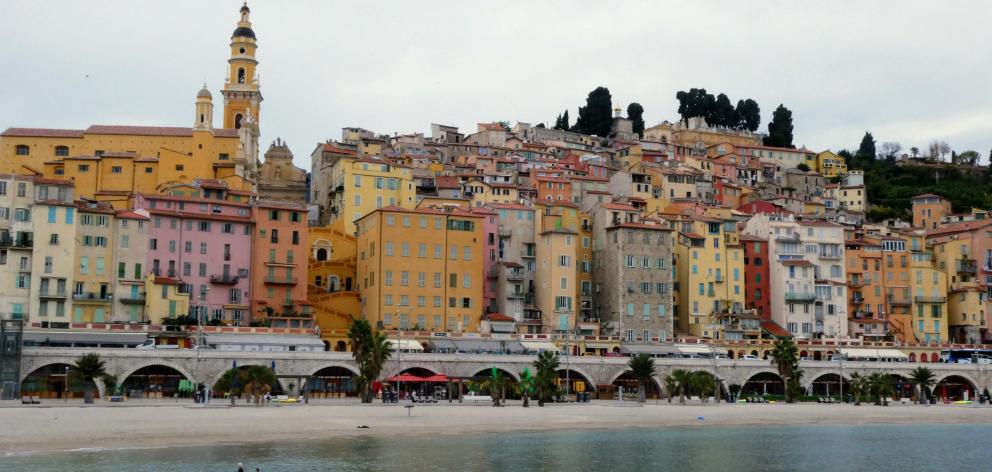
I’ve adapted very well to French living, which is to say I love the daily promenade to the boulangerie for fresh bread (and my pain au chocolat), I love the markets with their fresh produce, and I love the habit of siesta. Shops and other services tend to close here for a long lunch, which seems very civilised to me. When we first arrived, in early September, it was still very hot, so the day would finish with a swim at the beach. Now the end of the day is for a promenade along the Boulevard de Garavan, joining the parade of locals taking their small dogs for an early evening constitutional.
What has been the highlight of the time so far?
So many highlights! One example was our trip to Fontainebleau, near Paris, where Katherine Mansfield died a century ago. We were able to visit the priory where she lived for the final three months of her life, and take part in a graveyard ceremony to honour both the date of her birthday and the centenary of her death. I cannot think of a single lowlight. Does the boulangerie occasionally running out of our favourite baguette count?
What has been your favourite place to visit?
Menton is on the French side of the Italian border, so Italy is very accessible from here. We’ve had wonderful short trips to Rome and Florence, and closer to home to San Remo and Ventimiglia. But the south of France will always glow in my memory: places like Antibes, Nice and Grasse, and the mountain-top medieval town of St Agnes. As to why, it’s the potent mixture of landscape, light and lifestyle. There are so many human traces to follow in this area, whether it be architecture, streetscapes, ruins, art or literature. Everywhere we’ve visited in the south of France has offered its own revelation into how people have lived in this part of the world for millennia.
What is a French Christmas going to be like for you?
Dark and twinkly, with nougat!
What are you looking forward to the most in coming home, and why?
Being away reveals at least as much about your home values as it does about the place you’ve travelled to. So, I’m looking forward, first, to seeing my family, friends and garden, and then in the new year getting back to my usual day job, publishing books with my wonderful colleagues at Otago University Press. Added to this, I’m looking forward to many months ahead of opening my Menton journals on my writing desk at home to see what jumps out, and especially to picking up the thread on the new novel that I’ve begun to plan while here.









